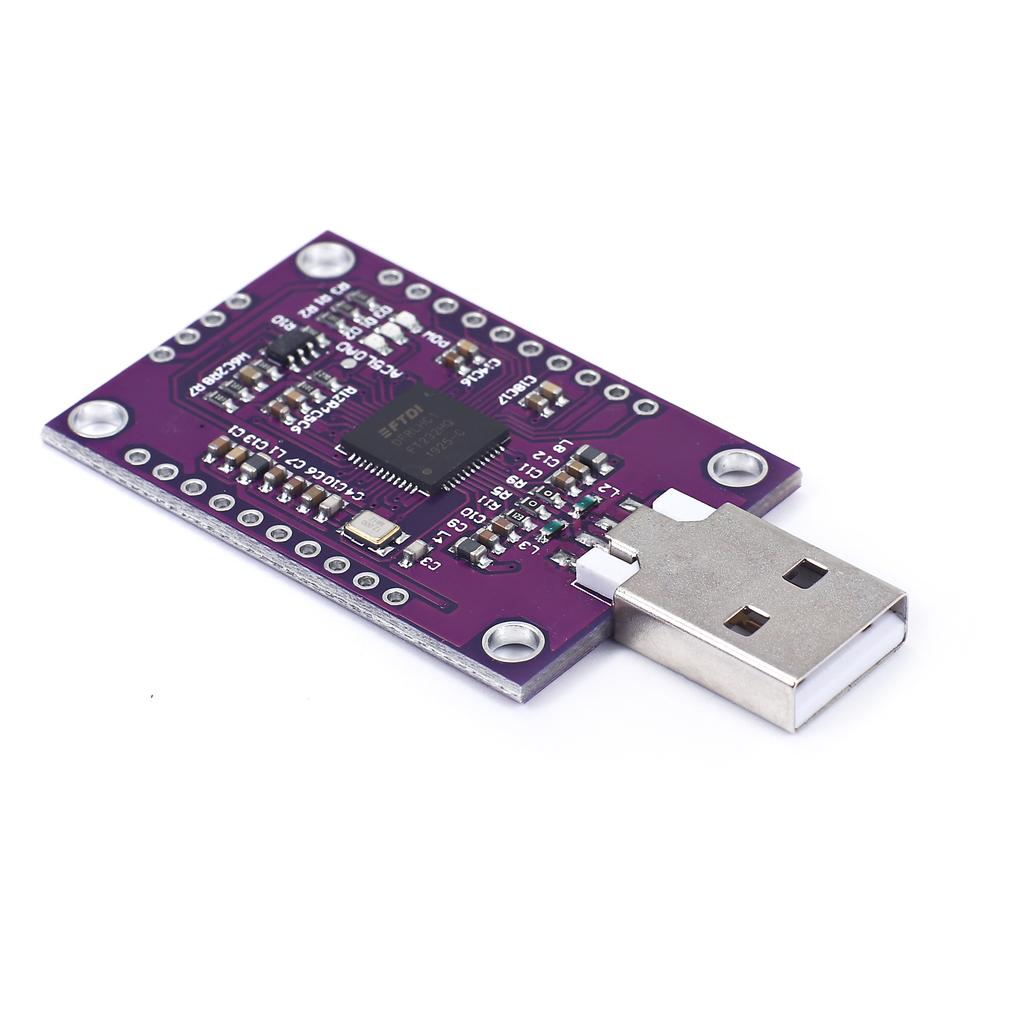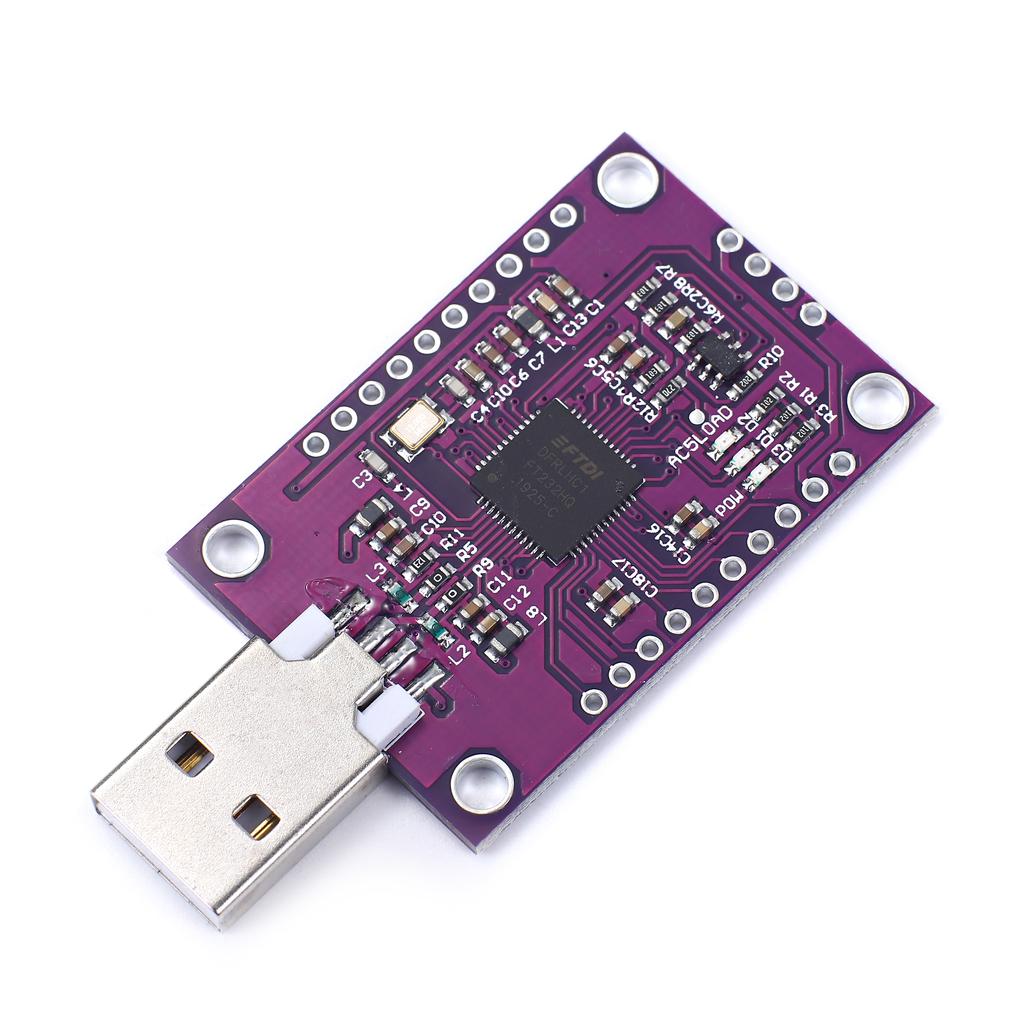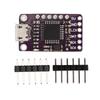Hign-concerned Chemical : None
Model Number : 123
Type : Voltage Regulator
Origin : China
Condition : New
MCU FT232H High Speed Multifunction USB to JTAG UART/FIFO IIC I2C Module External Memory
Typical Applications
Single chip USB to UART (RS232, RS422 or RS485)
USB to FIFO
USB to FT1248
USB to JTAG
USB to SPI
USB to I2C
USB to Bit-Bang
USB to Fast Serial Interface
USB to CPU target interface (as memory)
FT232H is a single channel USB 2.0 Hi-Speed (480Mb/s) to UART/FIFO IC. It has the capability of being configured in a variety of industry standard serial or parallel interfaces. The FT232H has the following advanced features:
Single channel USB to serial / parallel ports with a variety of configurations.
Entire USB protocol handled on the chip. No USB specific firmware programming required.
USB 2.0 Hi-Speed (480Mbits/Second) and Full Speed (12Mbits/Second) compatible.
Multi-Protocol Synchronous Serial Engine (MPSSE) to simplify synchronous serial protocol (USB to JTAG, I2C, SPI (MASTER) or bit-bang) design.
UART transfer data rate up to 12Mbaud. (RS232 Data Rate limited by external level shifter).
USB to asynchronous 245 FIFO mode for transfer data rate up to 8 Mbyte/Sec.
USB to synchronous 245 parallel FIFO mode for transfers upto 40 Mbytes/Sec
Supports a proprietary half duplex FT1248 interface with a configurable width, bi-directional data bus (1, 2, 4 or 8 bits wide).
CPU-style FIFO interface mode simplifies CPU interface design.
Fast serial interface option.
FTDI’s royalty-free Virtual Com Port (VCP) and Direct (D2XX) drivers eliminate the requirement for USB driver development in most cases.
Adjustable receive buffer timeout.
The line layout is compact and regular, with good electrical insulation and mechanical stability, and can maintain stable performance under different temperature and humidity environments to ensure accuracy and reliability.
In circuit design, carefully planned lines are like precision transportation networks, and lines of different widths and spacings undertake different currents and signals transmission tasks respectively. The key signal lines are impedance matching processing, which greatly reduces signal reflection and attenuation and ensures the stable transmission of high-frequency signals.
All kinds of electronic components are soldered on the circuit board, and the solder joints are full, round, and firm and reliable. Core components like chips are perfectly connected to the circuit board through fine packaging processes to achieve high-speed data processing and interaction.
This circuit board has a wide range of responses in many fields. Whether in the industrial control field that requires extremely high stability or consumer electronics field that pursues extreme performance, it can provide solid guarantees for the stable operation of the equipment with its excellent design and reliable performance, and help various electronic devices play a powerful role.





























